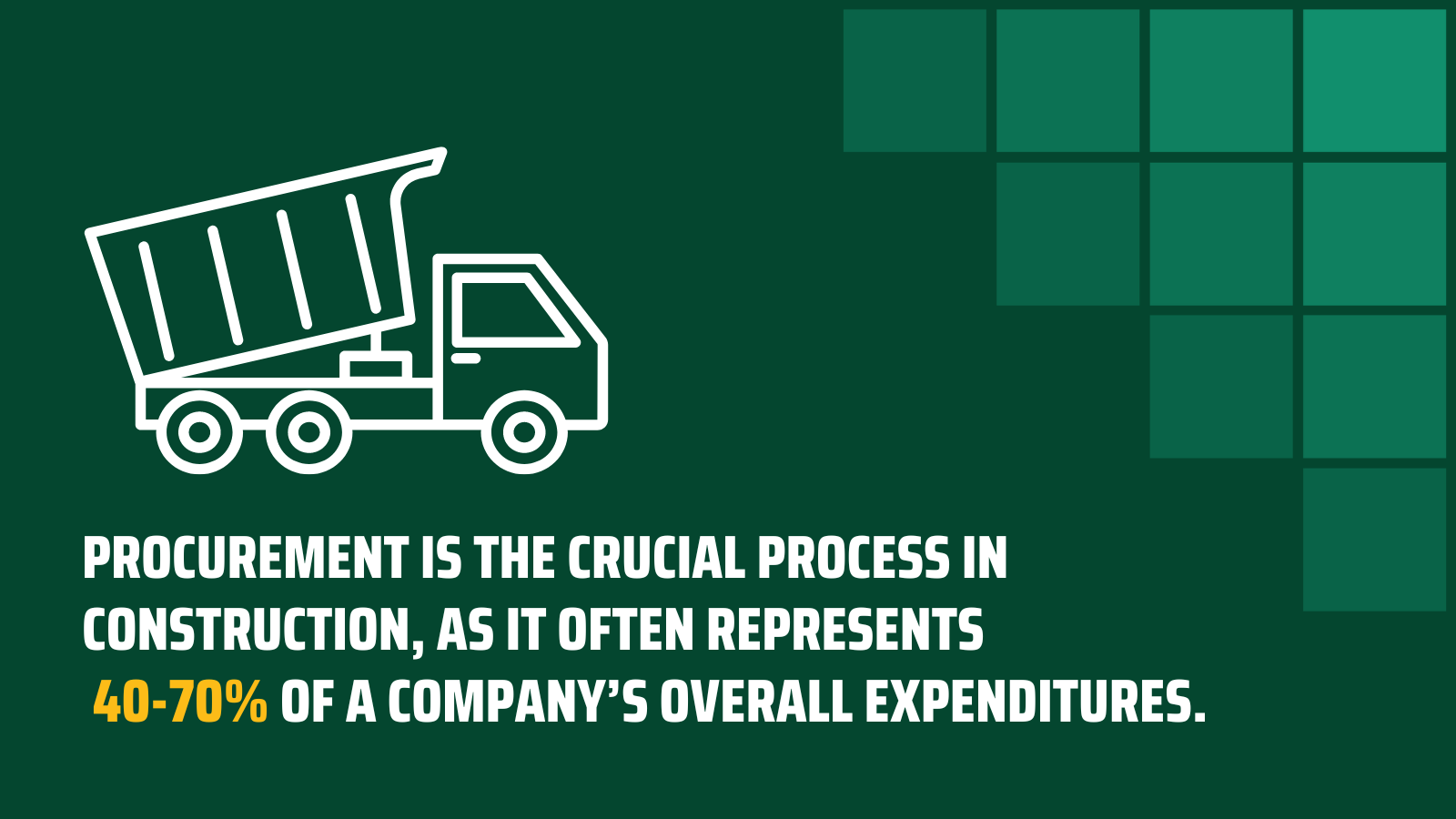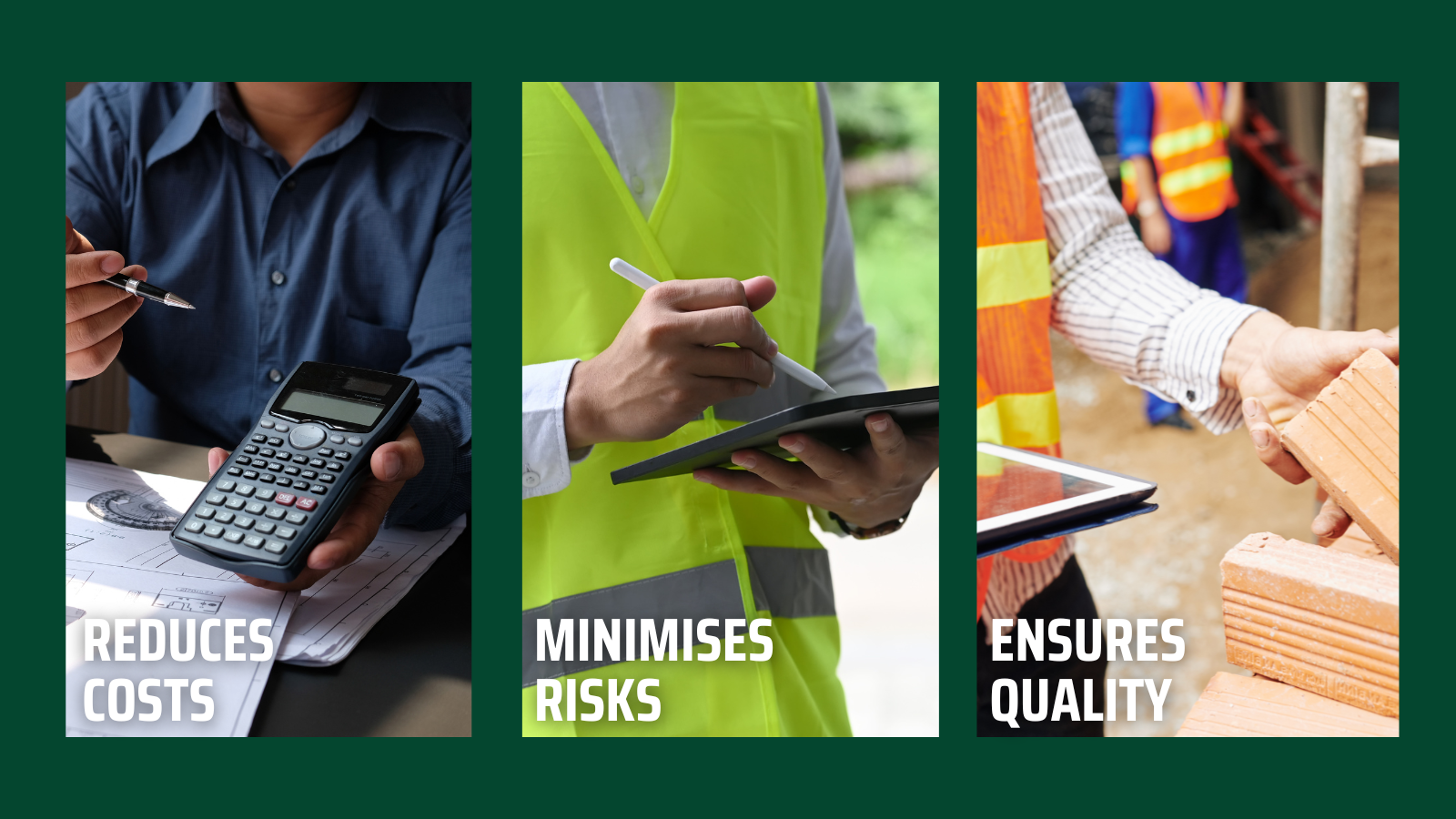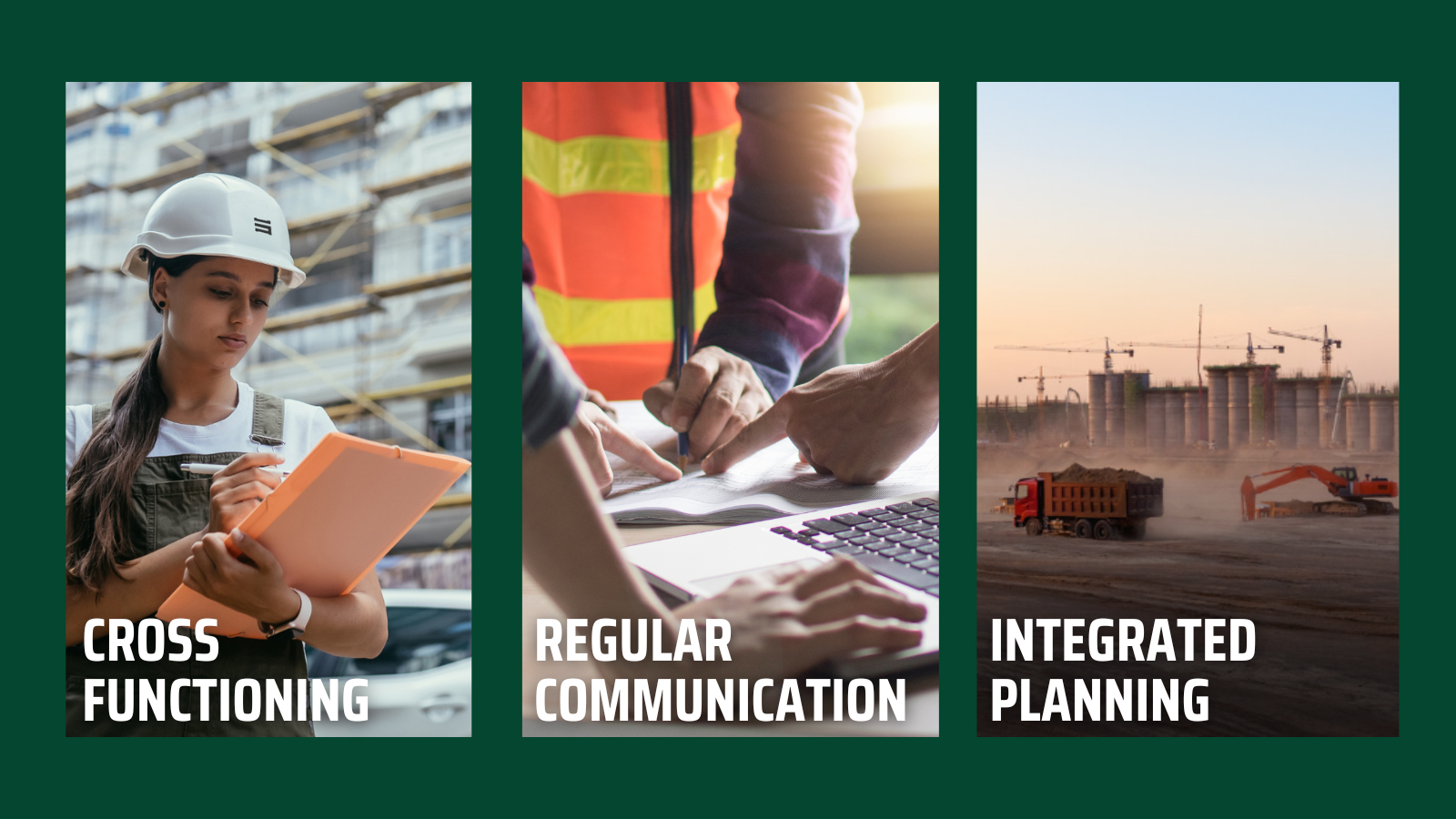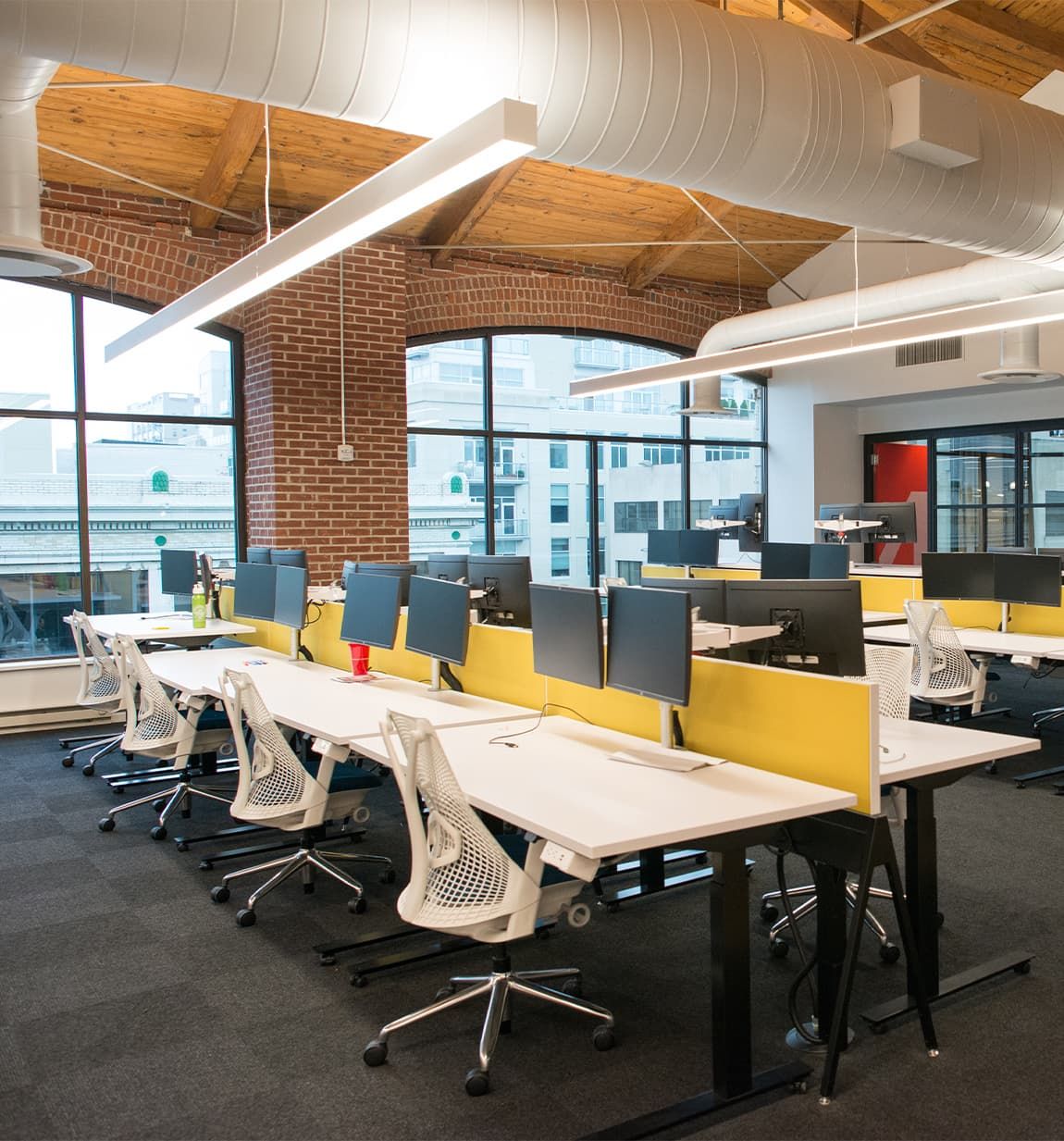Procurement and delivery are foundational to the success of any construction project. These processes form the backbone of the supply chain, ensuring that the right materials, equipment, and services are available at the right time and place. This guide explores the key components of effective procurement and delivery in the construction industry.
What is Procurement and Delivery?
Procurement is the process of obtaining the necessary materials, equipment, or services essential for completing a construction project. This process includes identifying the project's needs, defining the necessary specifications, and selecting and contracting the right contractors and suppliers to ensure successful delivery of the project.
In construction, procurement and delivery are more than just operational necessities—they are strategic functions that determine the trajectory of a project. Whether it’s a high-rise building, infrastructure project, or residential development, the efficiency and effectiveness of procurement and delivery can mean the difference between success and costly delays. Understanding the nuances of these processes helps project managers and procurement teams optimise their workflows, reduce risks, and deliver projects on time and within budget. A survey stated that procurement is the sensitive factor in construction, as it often represents 40 to 70 percent of a company’s overall expenditures.

Understanding the Procurement Process
Procurement in construction management involves the strategic sourcing of materials, services, and subcontractors required to execute a construction project. The process begins with identifying project needs, followed by selecting suppliers, negotiating contracts, and managing vendor relationships throughout the project lifecycle.
Effective procurement management ensures that resources are acquired at the right time, cost, and quality. In the construction industry, where delays or substandard materials can cause significant setbacks, robust procurement systems are essential to minimise these risks and align with project goals.
The procurement process typically follows several key stages:
Needs Assessment: The first step is figuring out what materials, services, or subcontractors are needed for the project. This step is crucial as it sets the foundation for the entire procurement process, considering the project's specifications, budget, and timelines.
Supplier Identification and Selection: Once the needs are clear, the next step is to find and choose potential suppliers. This involves researching, evaluating their capabilities, and shortlisting those that meet the project's needs, as the quality and reliability of suppliers are key to the project's success.
Tendering and Bidding: Many construction projects involve a tendering process where multiple suppliers compete for the contract. This competitive bidding ensures the project gets the best value for money while encouraging suppliers to offer their best terms.
Contract Negotiation and Awarding: After choosing the preferred supplier, the terms of the contract are negotiated. This step ensures both parties agree on pricing, delivery schedules, payment terms, and quality standards, helping to prevent disputes and keep the project on track.
Order Management and Execution: With contracts in place, the procurement team manages the ordering process. This includes issuing purchase orders, tracking deliveries, and handling any issues that arise to ensure materials and services arrive on time and don’t delay the project.
Supplier Relationship Management: Keeping good relationships with suppliers is important for ongoing project success. This means regular communication, reviewing performance, and resolving any issues that come up, helping to build a reliable supplier network for future projects.
Evaluation and Feedback: After the project is completed, it’s important to review the procurement process and provide feedback to suppliers. This helps identify areas for improvement and supports ongoing development of procurement practices.
What are the Benefits of Procurement and Delivery in Construction Management?
- Ensures Quality: Setting clear quality standards and implementing quality control measures throughout the procurement process is essential to ensure that the materials and services procured meet the project specifications and best standards. Quality assurance in procurement helps prevent costly rework and ensures that the final construction meets the expected standards.
- Reduces Costs: By leveraging competitive bidding, strategic sourcing, and negotiating favourable terms, procurement teams can significantly reduce project costs. This includes not only direct costs related to materials and services but also indirect costs such as delays, and rework caused by poor quality materials. But it is very important to note that negotiating lower costs for resources should not lead to reduction in the level of quality.
- Minimises Risks: Effective procurement involves selecting reliable suppliers and implementing robust risk management strategies. This includes conducting due diligence on suppliers, securing warranties, and establishing contingency plans to mitigate risks such as supply chain disruptions, cost escalations, or quality issues.

What are the Key Components of Procurement and Delivery?
The procurement process in construction has several essential parts that are crucial for a project’s success:
Selecting the Right Supplier?
Selecting the right supplier is a critical step in any construction project. The supplier you choose can have a significant impact on the project's quality, cost, and timeline. Here are some key factors to consider:
Extensive Experience of Supplier
- Domain Expertise: Suppliers with a strong understanding of the construction industry, particularly in your specific project area (e.g., residential, commercial, infrastructure), are more likely to deliver high-quality results.
- Project History: Assess a supplier's track record by reviewing their experience with similar projects. This can provide valuable insights into their capabilities and potential challenges.
- References: Request references from previous clients to gain firsthand feedback on their experience working with the supplier.
Financial Stability of Supplier
- Creditworthiness: Assess the financial health of the supplier to ensure they have the resources to meet their commitments. A financially stable supplier is less likely to encounter disruptions that could delay the project.
- Insurance Coverage: Confirm that the supplier has adequate insurance cover to protect both parties in the event of accidents or property damage.
Reputation of Supplier
- Industry Standing: Research the supplier's reputation within the construction industry. Look for testimonials, awards, or certifications that indicate their credibility.
- Customer Reviews: Read reviews from previous clients to gauge their satisfaction with the supplier’s services, communication, and overall performance.
- Ethical Practices: Consider the supplier’s commitment to ethical business practices and sustainability.
Negotiating the Supply Contract
A well-structured contract is essential for protecting the interests of both parties and ensuring smooth project execution. Key areas to focus on during the negotiation include:
Pricing Terms of Supplier
- Payment Terms: Agree on the payment schedule, including milestones, progress payments, and final payment conditions.
- Pricing Adjustments: Set guidelines for price adjustments, if applicable, to account for changes in material costs or labour rates.
- Incentives and Penalties: Consider adding incentives for early completion or exceptional quality, along with penalties for delays or substandard work.
Delivery Schedules of Supplier
- Timeline: Clearly define the expected delivery dates for materials, equipment, or services.
- Contingency Plans: Discuss contingency plans in case of delays or unforeseen circumstances that wouldn’t affect the site work.
- Late Delivery Penalties: Outline penalties for late deliveries to encourage timely performance.
Quality Standards of Materials
- Specifications: Specify the required quality standards for materials and workmanship in detail.
- Inspection Procedures: Establish procedures for inspecting and approving materials and workmanship.
- Quality Assurance: Agree on quality assurance measures, such as testing or certifications, to ensure compliance with standards.
Payment Terms for Supply
- Payment Schedule: Align payment terms with project milestones and the supplier’s cash flow requirements.
- Retention: Decide if a retention amount will be withheld from the final payment until the project is fully completed and accepted.
- Dispute Resolution: Specify the dispute resolution process, such as mediation or arbitration, in case of disagreements over payment or other contract terms.
Purchase Order Management
Efficient purchase order management is crucial for ensuring the timely delivery of materials to the construction site. Key aspects include:
Order Requirements
- Accuracy: Ensure purchase orders are accurate, complete, and include all necessary details, such as item descriptions, quantities, prices, and delivery dates.
- Approval Process: Implement an approval process to authorise purchase orders and prevent unauthorised spending.
- Vendor Information: Verify vendor details, including contact information, payment terms, and shipping instructions.
Order Tracking
- Communication: Maintain open communication with suppliers to track the progress of orders and address any issues promptly.
- Delivery Confirmation: Obtain confirmations from suppliers to verify that materials have been received.
- Inventory Updates: Update inventory records to reflect the receipt of materials.
Issue Resolution
- Complaint Process: Establish a process for reporting and resolving issues related to purchase orders, such as discrepancies in quantity, quality, or delivery.
- Vendor Communication: Collaborate with suppliers to address issues and find mutually satisfactory solutions.
- Documentation: Keep records of all communication and resolutions related to purchase order issues.
Inventory Management
Effective inventory management of resources at the construction site is vital for avoiding delays and minimising costs. Key considerations include:
Managing Stock Levels
- Demand Forecasting: Use demand forecasting techniques to determine optimal stock levels based on project needs and consumption rates.
- Lead Times: Account for supplier lead times when setting stock levels to ensure an adequate supply.
- Storage Costs: Balance the cost of holding inventory against the risk of stockouts.
Just-In-Time Inventory Management
- Supplier Coordination: Work closely with suppliers to implement just-in-time delivery systems, where materials are delivered as needed to minimise inventory holding costs.
- Kanban Systems: Consider using Kanban systems to signal the need for replenishing inventory.
Conducting Inventory Audits
- Regular Checks: Conduct regular physical audits to verify stock levels and identify discrepancies.
- Cycle Counting: Implement cycle counting to audit specific inventory items on a rotating basis.
- Inventory Management Software: Use software to track stock levels, monitor usage, and generate reports.
Supplier Performance Evaluation
Regular evaluation of supplier performance is essential for maintaining high standards of quality in the project timeline and project delivery on time. Key aspects here include:
Tracking Supplier Performance Metrics
- Key Performance Indicators (KPIs): Set KPIs to measure supplier performance, such as delivery time, quality, responsiveness, and pricing.
- Data Collection: Collect data on supplier performance to track trends and identify areas for improvement.
- Benchmarking: Compare supplier performance against industry benchmarks or best practices.
Supplier Concerns and Feedback
- Regular Reviews: Conduct performance reviews with suppliers to provide feedback and identify areas for improvement.
- Issue Resolution: Address issues or concerns collaboratively and promptly with suppliers.
- Recognition: Recognise and reward suppliers for exceptional performance to foster positive relationships.
Building Long-Term Relationships
- Partnership Approach: Build strong, long-term relationships with top-performing suppliers based on trust, collaboration, and mutual benefit.
- Supplier Development: Consider investing in supplier development to improve their capabilities and meet evolving project needs.
- Risk Mitigation: Diversify your supplier base to reduce risks and ensure a reliable supply chain.
What are the Best Practices for Procurement and Delivery
To optimise procurement and delivery in construction, consider adopting the following best practices:
Collaboration
Collaboration between procurement, project management, and construction teams is essential for ensuring that procurement aligns with project goals. Effective collaboration includes:
- Cross-Functioning: Establishing cross-functional teams that include representatives from procurement, project management, and construction to ensure that all aspects of the project are considered in procurement decisions.
- Regular Communication: Holding check-in meetings to discuss project progress, procurement needs, and any challenges that arise. This helps ensure that all teams are aligned with proper planning and working towards the same objectives.
- Integrated Planning: Integrating procurement planning with overall project planning to ensure that materials and services are procured in line with project timelines and milestones.

Risk Management
Risk management is a critical component of procurement and delivery. It involves identifying potential risks early in the process and implementing strategies to mitigate them. Best practices include:
- Risk Assessments: Conducting thorough risk assessments at the start of the procurement process to identify potential risks and their impact on the project.
- Contingency Planning: Developing contingency plans that pin down alternative strategies for sourcing, delivery, and quality control in case of unforeseen issues.
- Continuous Monitoring: Continuously monitoring the procurement process for new risks and adjusting strategies as needed to mitigate them.
Continuous Improvement
Continuous improvement is essential for optimising procurement and delivery processes. This involves regularly reviewing and refining procurement practices to enhance efficiency, effectiveness, and responsiveness to changing project needs. Best practices include:
- Performance Reviews: Conducting regular performance reviews of procurement and delivery processes to identify areas for improvement.
- Feedback Loops: Establishing feedback loops with suppliers and project teams to gather insights on what is working well and what could be improved.
- Training and Development: Providing ongoing training and development opportunities for procurement teams to ensure they stay up to date with industry best practices and emerging technologies.
Data-Driven Decision Making
Utilising data analytics to inform procurement decisions ensures that strategies are based on accurate and relevant information. Data-driven decision-making helps:
- Identify Trends: Analyse procurement data to identify trends in supplier performance, pricing, and quality that can inform future procurement strategies.
- Optimise Spending: Use data to track spending patterns and identify opportunities for cost savings and efficiency improvements.
- Improve Supplier Management: Leverage data to assess supplier performance and make informed decisions about supplier relationships, including when to renegotiate contracts or seek alternative suppliers.
Conclusion
Effective procurement and delivery are essential to the success of construction projects. By understanding the key components, overcoming challenges, and implementing best practices, construction managers can optimise the supply chain, reduce costs, and ensure timely project completion. The integration of technology and data-driven decision-making further enhances these processes, making them more resilient and efficient.
About us
Stonehaven is a trusted project management company and construction consultant based in Dubai, offering comprehensive construction management services across the UAE with offices located in Dubai, UK and Sri Lanka. As one of the leading project management companies in Dubai, we manage projects from inception to completion, ensuring quality, efficiency, and cost-effectiveness at every stage.
We deliver value through expert project management consultancy services, tailored to meet the unique needs of each client. Our core services include Cost Management, Project Management, Construction Supervision, Engineering Support, Design Support, and Marketing & Communications. Whether you’re looking for construction consultants or project managers in the UAE and wider GCC region, Stonehaven is your trusted partner for achieving excellence in your next project.
At Stonehaven, we specialise in procurement management and construction procurement services, offering comprehensive solutions that ensure seamless supply and contract management. Our experienced team is dedicated to delivering reliable, cost-effective, and timely procurement solutions tailored to your project's unique needs. Discover how our expertise in procurement can enhance your construction project's success.
Visit our website www.stonehaven.ae to learn more about our procurement and delivery services.







